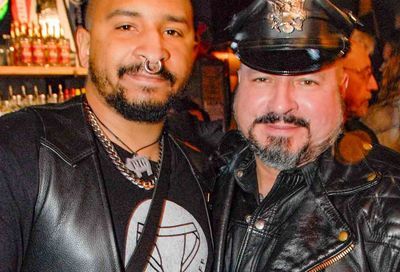Kuwait overturns law used to prosecute trans people
Human rights activists claim the 2007 law has been selectively enforced to target gender-nonconforming individuals.

Kuwait’s constitutional court has overturned a law that had been used to prosecute transgender people on the grounds that the statute violates Kuwaitis’ right to personal freedom.
The law, known as Article 198, had criminalized the “imitation of the opposite sex,” which Kuwaiti authorities had used to arrest and prosecute gender-nonconforming individuals or those whose physical appearance or gender expression did not match the gender on their official identification card.
Transgender advocates and human rights activists had panned the law, arguing that police selectively enforced it, detaining transgender people and others at checkpoints after inspecting their papers for subjective reasons, such as when a person assigned male at birth has a “feminine” voice.
Activists say police have sexually harassed, physically assaulted, and even jailed people on suspicion of being transgender under the law. According to research compiled by Human Rights Watch a decade ago, 39 of 40 Kuwaiti trans women interviewed by the international human rights watchdog reported having been arrested for violating Article 198.
Lynn Maalouf, Amnesty International’s deputy director for the Middle East and North Africa, welcomed the court’s ruling a a “major breakthrough” but called on authorities to make sure the law was fully repealed and implemented.
“Article 198 was deeply discriminatory, overly vague and never should have been accepted into law in the first place,” Maalouf said in a statement.
The law was initially passed in 2007 when the country’s National Assembly amended the penal code to criminalize “indecent” gestures in public and “imitation of the opposite sex,” making it punishable by a fine and up to a year in prison.
But the law came under scrutiny in 2020, when Maha al-Mutairi, a trans woman and social media influencer, criticized the law in a series of Snapchat videos. She accused police of detaining her illegally under the law, placing her in a men’s prison, and raping and beating her.
“God made me like this,” she said in one of the videos. “I wish that I felt like a man deep inside. I’d pay all the money in the world to feel like a normal man. Why would you do this to me?”
Although al-Mutairi was eventually sentenced to two years in prison and a fine for breaking the law, she was eventually released on appeal last year, reports the New York Times. More importantly, her case helped galvanize transgender activism in the country, and the constitutional court agreed to hear a challenge to the laws last December, eventually handing down its decision on Wednesday.
The court’s decision ruling the law unconstitutional is a rare victory for LGBTQ rights in the Middle East, where homosexuality and gender-nonconformity is either criminalized or discouraged by society. Only Oman expressly prohibits transgender people from expressing their identities, but many other countries in the region forbid men from wearing women’s clothing or entering spaces designated for those assigned female at birth.
Even trans people who undergo gender confirmation surgery often have difficulty having their identities recognized by the government. For example, Kuwait has no process in place to change one’s legal gender, and many transgender people have trouble accessing jobs, health care, housing, or other services requiring them to show identity cards that do not reflect their gender identity.
Shaikha Salmeen, a lawyer and activist who worked on al-Mutairi’s case, told the Times that the court’s ruling was a step “in the right direction.”
“It was unconstitutional and no one can doubt that,” she said, although she also warned that there would likely be both a political and social backlash from conservatives. “Their fight back is going to be vicious for sure.”
Support Metro Weekly’s Journalism
These are challenging times for news organizations. And yet it’s crucial we stay active and provide vital resources and information to both our local readers and the world. So won’t you please take a moment and consider supporting Metro Weekly with a membership? For as little as $5 a month, you can help ensure Metro Weekly magazine and MetroWeekly.com remain free, viable resources as we provide the best, most diverse, culturally-resonant LGBTQ coverage in both the D.C. region and around the world. Memberships come with exclusive perks and discounts, your own personal digital delivery of each week’s magazine (and an archive), access to our Member's Lounge when it launches this fall, and exclusive members-only items like Metro Weekly Membership Mugs and Tote Bags! Check out all our membership levels here and please join us today!






















